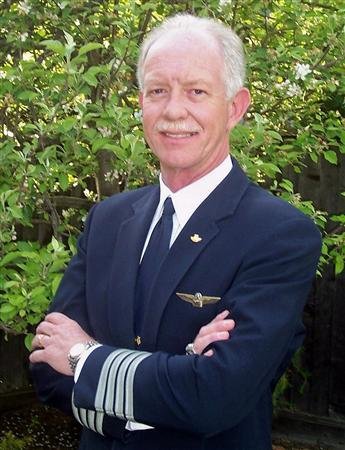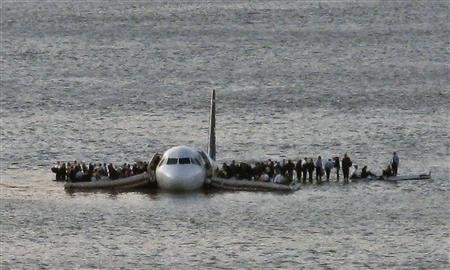You are right, human factor means not only a pilot, but all personnel in the aircraft and also in the airport. I cant show you the source of the 90 % estimation, at least in the way you are expected, because it is all insider information during the air accidents investigation in my region, to which I have access. Term "insider" means that it is as real as it can be, but also that it is unofficial, so nobody will officially confirm that nor you will see that in any official report. The reasons are various - the one of them I described in my previous post.
However to argue with some solid evidence, I can use the official World aviation safety report from the previous year and make some citations from it. According to it, in the 2008 we had 33 fatal accidents with 589 people dead. From all accidents 75 % of them was caused by the human factor. Only the rest 25 % goes to the technical failures and all other reasons. The most deadliest factors are:
1. LOC (lost of control) - caused for example by pilots disorientation (turning during the night, flight by the instruments IMC and others). Interesting thing is that one of the most important recommendation for that year is that the companies must put the bigger attention to the Company culture and Crew Resource Management, especially to the work of the second pilot, because in the most cases the failure was done by the first pilot and the intervention of the second pilot, that could save the situation, was done too late. There is also the economic pressure from the airliners managemet to the pilots not to do "go around" after a unsuccessful landing approaching, that causes also a lot of troubles.
Another interesting thing is that there is the increase of the LOC accidents, caused by the ice coating. Not the ice coating itself, but because the pilots used this system improperly or they didn't use it at all. So there is also the second important recommendation to review all guidance books and training methods, that are related to the subject.
2. CFIT (Controlled Flight Into Terrain) - the second deadliest factor. It is a paradox, because less than 5 % of the jet airliners doesn't have TAWS (Terain Awareness Warning System) already installed. However as you can read in my previous post, the fact, that it is on board and that it is working properly doesn't always mean, that the human factor will not affect it.
3. Post-crash fire - this is the factor that causes the casualties, not the accidents themselves, so we can continue to the next factor
4. Runway Incursions and Excursions - from 2002 to 2008 more than 55 % of the RIaE was caused by the pilots, about 25 % by the flight operations managers and about 7 % by the airfield vehicles stuff.
Because of this official statistics (and as I wrote before, the reality is even worse), the most aviation accidents are caused by the human factor, primarily by the pilots. And I think that it is very natural conclusion, the same as the most car accidents are caused by the failure of the drivers. So this is the point why I disagree with your list of the reasons of the air accidents. I used the translated paper copy of the report, but I think that it is available also online somewhere and in English, so if you want additional information and deeper analysis, it is recommended reading. The fair thing is to ask you the same question - what is the source of your list?
___________________________________________________________
Now the second part of my reply, that is closer to the theme of the subject. I think that the question should be as follows:
In the case manned versus unmanned airliner, are robotic automated systems capable to sustain unexpected and emergency situations at least as good as the human pilots?
My answer is: No, not yet. So I can only once again repeat my original idea written here: It is reasonable to have an unmanned airliner, that will take off, fly and land in unmanned mode most of the time. The regular pilot will be on board, but only for the two reasons:
1. He will take control of the plane in the emergency situations, because the human brain is so far better than any current robotic system and the robotic systems are not yet sophisticated enough to sustain it.
2. He will be some sort of the actor for the passangers, so the passangers can trust in the human being, rather than in the big set of the cables and Taiwan chips.


